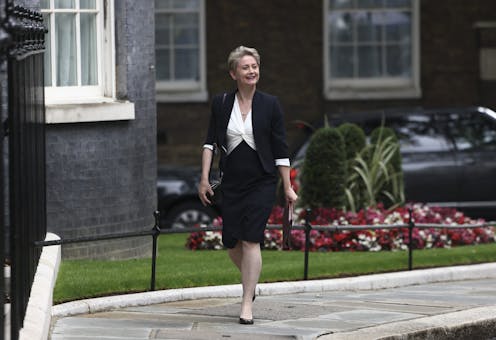
Migration policy has always been an ideological headache for the Labour party. Caught between the party’s labour market protectionism and international solidarity, Keir Starmer was fairly muted on migration during the election campaign.
Now that they are in power, we are starting to see what a Labour government’s policy on asylum and migration looks like. Labour’s approach is centred around border security, and ultimately aims to reduce the number of asylum claimants – albeit in a less sensationalist fashion than their predecessors.
Despite being a small fraction of overall immigration, small boat crossings have become the focal issue in migration politics. With 500 crossings since he became prime minister and 1,400 this year, Starmer is under pressure to bring these numbers down.
The king’s speech included plans to introduce a border security, asylum and immigration bill. This will establish a new border security command with “enhanced counter terrorism powers” to tackle organised immigration crime. These powers are expected to include increased stop and search at borders, and stronger penalties for criminals involved.
This “smash the gangs” approach is centred around breaking the business model of criminal smuggling gangs, tackling their ability to communicate and move people across Europe for profit.
Starmer has indicated that closer collaboration with Europe through law enforcement and data-sharing will be part of this. Hosting European leaders on July 18, Starmer drew a line between his government and his predecessors. He annouced that he intends to increase the UK presence in EU law enforcement agency Europol to help tackle criminal gangs.
Labour might have changed the villain from the irregular migrant to the criminal gang, but this is a policy to “stop the boats” by another name.
Focusing on “border security” first in an asylum system links questions of humanitarian migration and protection with crime and terrorism. This risks being dehumanising and failing to address the reasons why people are making dangerous boat crossings in the first place.
Deterrence without Rwanda
The most welcome change so far has been the government’s decision to scrap the inhumane and contentious Rwanda policy, and redirect the funds elsewhere, including to speed up the asylum processing system.
However, there are signs that the government is exploring alternative offshore processing plans. Officials say they are willing to pursue this approach if it meets three criteria: it deters new asylum seekers, is cost effective and complies with international law.
There remains a populist thread here – the fact that the policy objective is to deter asylum seekers is in itself very telling. The policy of deterring asylum claims is nonsensical unless it is part of a foreign policy approach that aims to reduce global conflict.
To this end, the government has announced £84 million in funding for projects across Africa and the Middle East including humanitarian and health support, skills training, help with job opportunities and access to education. The prime minister indicated this would help reduce immigration demand, saying: “The huge problems beyond our shores […] echo at home”.
While aid to developing countries is ethical and necessary, the link between development and migration is complex. Using development to deter migration is not a neutral policy approach. It arguably replicates historically colonialist and racist attempts to control populations in poorer countries.
Also, evidence shows that the assumption that development decreases migration is a fallacy. On the contrary, development tends to initially increase internal and international migration as people gain the resources to move.
Read more: Why many policies to lower migration actually increase it
While Starmer has spoken of respect for international law and human rights, these policies so far maintain the dehumanising framing leftover from past governments: asylum seekers are a problem to be reduced, rather than people in need of protection.
Over the weekend, it was announced that the hundreds of Home Office staff previously working on the Rwanda policy would now be deployed to conduct immigration raids on businesses like car washes and nail salons. The signifies that Labour are wedded to securitising migration, and are keen to be seen as tough as their predecessors on irregular migration.

Developing skills at home
Beyond asylum and irregular migration, Labour has been relatively quiet on migration for work and study. Like past governments, they have committed to bringing down net migration (though have avoided the trap of setting a specific target number).
The announcement of the skills England programme is the first indication of how this policy could take shape. The skills England bill, announced in the king’s speech, suggests a very different (and welcome) approach to reducing the labour market demand for overseas workers by addressing UK workforce deficiencies.
But we do not have detail yet on the government’s approach to the visa regime, in particular whether they will use carrots or sticks – holistic planning, joined-up government, reform and incentives to address labour shortages, or continuing to curtail the rights of migrants to live and work in the UK.
Erica Consterdine does not work for, consult, own shares in or receive funding from any company or organisation that would benefit from this article, and has disclosed no relevant affiliations beyond their academic appointment.
This article was originally published on The Conversation. Read the original article.







